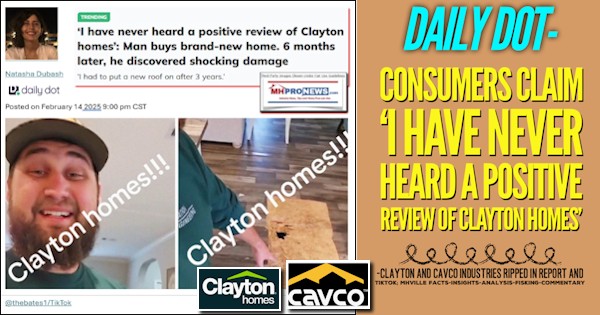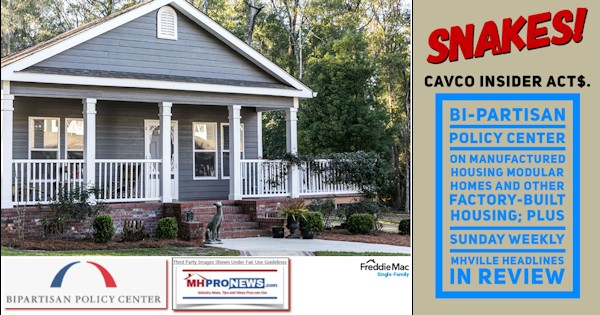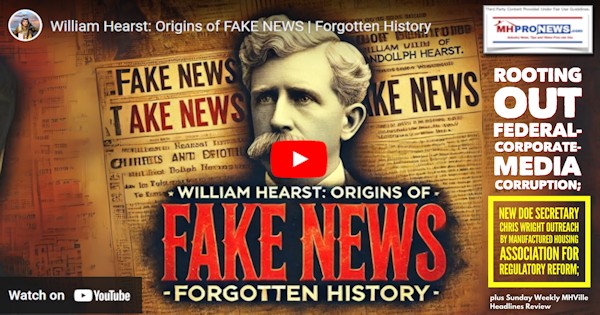 In a far-ranging interview with MHProNews publisher L. A. “Tony” Kovach, Clayton Homes founder Jim Clayton discusses his path from acquiring his first mobile home, when he initially realized the profits of manufactured homes over cars, to the concept of vesting company employees with ownership rights and responsibilities. Armed with electrical engineering and law degrees, Clayton began examining methods of accounting, sales, media coverage and lending as they apply to the sale of manufactured homes. In the five years from 1968 to 1973 he sold 700 homes for $25 million in revenue each year.
In a far-ranging interview with MHProNews publisher L. A. “Tony” Kovach, Clayton Homes founder Jim Clayton discusses his path from acquiring his first mobile home, when he initially realized the profits of manufactured homes over cars, to the concept of vesting company employees with ownership rights and responsibilities. Armed with electrical engineering and law degrees, Clayton began examining methods of accounting, sales, media coverage and lending as they apply to the sale of manufactured homes. In the five years from 1968 to 1973 he sold 700 homes for $25 million in revenue each year.
Noting he was a sharecropper’s son, Clayton emphasizes the importance of learning: “I do think that a person can adapt and change successfully into a can-do mindset provided he/she is willing to make the commitment to learning. One must become aware of his/her strengths and weaknesses and be willing to learn from mistakes. Failures and set-backs can promote self-introspection and it is during these moments that greatness is often born.”
Commenting on the concept of servant leadership as a method of corporate management: “A servant-leader focuses primarily on the growth and well-being of people and the communities to which they belong. While traditional leadership generally involves the accumulation and exercise of power by one at the ‘top of the pyramid,’… the servant-leader hands the power to the people—and supports with financial and other resources—and sets the boundaries wide enough to all for mistakes. Actual mistakes provide highly productive learning opportunities.”
Clayton says hiring the right people, equipping them with the know-how, and increasing their responsibilities as members of Team Share worked at Clayton Homes and the same philosophy is also working at Clayton Bank and Trust, of which Clayton is chairman. “Each person is an owner through the bank’s ESOP (employee stock ownership plan). Treating them like ‘partners’ instead of employees reduces turnover, increases morale and enhances customer service.”
Commenting on the ‘mirroring’ sales strategy in which sales reps mimic the manners, speaking tone and belief’s of the prospective client, Clayton says, “If the client talks fast, we talk fast. If they lean forward in their chair, we lean forward in ours. Small behavioral nuances can differentiate a super star from the herd as we are agreeable and in non-verbal ways convey that ‘We’re on the same page.’ Customers want to be heard and respected and through ‘mirroring’ we are affirming their value and importance to us.”
For the full interview, click here.
(Photo credit: MHProNews.com–Jim Clayton, left, talks with L. A. “Tony” Kovach)

























